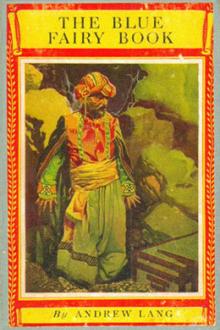lead there, but I seemed to have travelled in Time and to have missed it among the centuries. And when as I wandered over the grassy hills I came on a wattled shrine that was thatched with straw and saw a lion in it more worn with time than even the Sphinx at Gizeh and when I knew it for one of the four in Trafalgar Square then I saw that I was stranded far away in the future with many centuries of treacherous years between me and anything that I had known. And then I sat on the grass by the worn paws of the lion to think out what to do. And I decided to go back through Go-by Street and, since there was nothing left to keep me any more to the fields we know, to offer myself as a servant in the palace of Singanee, and to see again the face of Saranoora and those famous, wonderful, amethystine dawns upon the abyss where the golden dragons play. And I stayed no longer to look for remains of the ruins of London; for there is little pleasure in seeing wonderful things if there is no one at all to hear of them and to wonder. So I returned at once to Go-by Street, the little row of huts, and saw no other record that London had been except that one stone lion. I went to the right house this time. It was very much altered and more like one of those huts that one sees on Salisbury plain than a shop in the city of London, but I found it by counting the houses in the street for it was still a row of houses though pavement and city were gone. And it was still a shop. A very different shop to the one I knew, but things were for sale there—shepherd's crooks, food, and rude axes. And a man with long hair was there who was clad in skins. I did not speak to him for I did not know his language. He said to me something that sounded like "Everkike." It conveyed no meaning to me; but when he looked towards one of his buns, light suddenly dawned in my mind, and I knew that England was even England still and that still she was not conquered, and that though they had tired of London they still held to their land; for the words that the man had said were, "Av er kike," and then I knew that that very language that was carried to distant lands by the old, triumphant cockney was spoken still in his birthplace and that neither his politics nor his enemies had destroyed him after all these thousand years. I had always disliked the Cockney dialect—and with the arrogance of the Irishman who hears from rich and poor the English of the splendour of Elizabeth; and yet when I heard those words my eyes felt sore as with impending tears—it should be remembered how far away I was. I think I was silent for a little while. Suddenly I saw that the man who kept the shop was asleep. That habit was strangely like the ways of a man who if he were then alive would be (if I could judge from the time-worn look of the lion) over a thousand years old. But then how old was I? It is perfectly clear that Time moves over the Lands of Dream swifter or slower than over the fields we know. For the dead, and the long dead, live again in our dreams; and a dreamer passes through the events of days in a single moment of the Town-Hall's clock. Yet logic did not aid me and my mind was puzzled. While the old man slept—and strangely like in face he was to the old man who had shown me first the little, old backdoor—I went to the far end of his wattled shop. There was a door of a sort on leather hinges. I pushed it open and there I was again under the notice-board at the back of the shop, at least the back of Go-by Street had not changed. Fantastic and remote though this grass street was with its purple flowers and the golden spires, and the world ending at its opposite pavement, yet I breathed more happily to see something again that I had seen before. I thought I had lost forever the world I knew, and now that I was at the back of Go-by Street again I felt the loss less than when I was standing where familiar things ought to be; and I turned my mind to what was left me in the vast Lands of Dream and thought of Saranoora. And when I saw the cottages again I felt less lonely even at the thought of the cat though he generally laughed at the things I said. And the first thing that I saw when I saw the witch was that I had lost the world and was going back for the rest of my days to the palace of Singanee. And the first thing that she said was: "Why! You've been through the wrong door," quite kindly for she saw how unhappy I looked. And I said, "Yes, but it's all the same street. The whole street's altered and London's gone and the people I used to know and the houses I used to rest in, and everything; and I'm tired."
"What did you want to go through the wrong door for?" she said.
"O, that made no difference," I said.
"O, didn't it?" she said in a contradictory way.
"Well I wanted to get to the near end of the street so as to find my boat quickly by the Embankment. And now my boat, and the Embankment and—and——."
"Some people are always in such a hurry," said the old black cat. And
I felt too unhappy to be angry and I said nothing more.
And the old witch said, "Now which way do you want to go?" and she was talking rather like a nurse to a small child. And I said, "I have nowhere to go."
And she said, "Would you rather go home or go to the ivory palace of Singanee." And I said, "I've got a headache, and I don't want to go anywhere, and I'm tired of the Lands of Dream."
"Then suppose you try going in through the right door," she said.
"That's no good," I said. "Everyone's dead and gone, and they're selling buns there."
"What do you know about Time?" she said.
"Nothing," answered the old, black cat, though nobody spoke to him.
"Run along," said the old witch.
So I turned and trudged away to Go-by Street again. I was very tired. "What does he know about anything?" said the old black cat behind me. I knew what he was going to say next. He waited a moment and then said, "Nothing." When I looked over my shoulder he was strutting back to the cottage. And when I got to Go-by Street I listlessly opened the door through which I had just now come. I saw no use in doing it, I just did wearily as I was told. And the moment I got inside I saw it was just the same as of old, and the sleepy old man was there who sold idols. And I bought a vulgar thing that I did not want, for the sheer joy of seeing accustomed things. And when I turned from Go-by Street which was just the same as ever, the first thing that I saw was a taximeter running into a hansom cab. And I took off my hat and cheered. And I went to the Embankment and there was my boat, and the stately river full of dirty, accustomed things. And I rowed back and bought a penny paper, (I had been away it seemed for one day) and I read it from cover to cover—patent remedies for incurable illnesses and all—and I determined to walk, as soon as I was rested, in all the streets that I knew and to call on all the people that I had ever met, and to be content for long with the fields we know.
End of Project Gutenberg's Tales of Three Hemispheres, by Lord Dunsany






Comments (0)